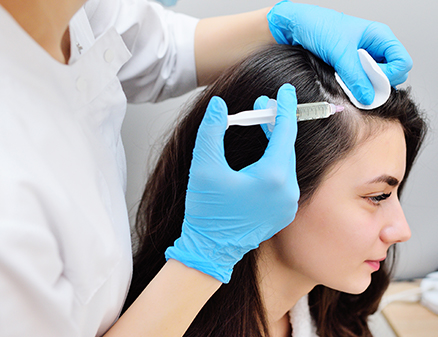Finasteride is a widely used medication for treating hair loss, particularly androgenetic alopecia (male and female pattern baldness). While many individuals experience positive results from this treatment, it’s essential to understand the potential risks and side effects associated with Finasteride for Hair Loss Dubai. This article will explore the risks of taking finasteride for hair loss, helping individuals in Dubai make informed decisions about their treatment options.
Understanding Finasteride
How Finasteride Works
Finasteride works by inhibiting the enzyme 5-alpha-reductase, which converts testosterone into dihydrotestosterone (DHT). High levels of DHT are linked to hair loss in genetically predisposed individuals. By lowering DHT levels, finasteride helps slow hair loss and promote regrowth.
Approved Uses
Finasteride is FDA-approved for the treatment of male pattern baldness at a dosage of 1 mg per day. In some cases, it is also prescribed off-label for women experiencing hair thinning, particularly post-menopausal women.
Common Risks and Side Effects
While finasteride can be effective, it is important to be aware of the potential risks and side effects, which may include:
1. Sexual Side Effects
- Decreased Libido: Some users may experience a reduction in sexual desire.
- Erectile Dysfunction: Difficulty in achieving or maintaining an erection has been reported in a small percentage of users.
- Ejaculation Disorders: Changes in ejaculation, including reduced volume or delayed ejaculation, may occur.
These side effects are typically rare and may resolve after discontinuation of the medication. However, some users have reported persistent side effects even after stopping finasteride, which is a concern that should be discussed with a healthcare provider.
2. Hormonal Changes
- Gynecomastia: Some men may develop breast tissue enlargement or tenderness due to hormonal changes induced by finasteride.
- Mood Changes: There have been reports of mood swings, anxiety, and depression in some users. It is crucial to monitor mental health while on this medication.
3. Allergic Reactions
Though rare, some individuals may experience allergic reactions to finasteride, which can manifest as:
- Rash
- Itching
- Swelling of the face, lips, or throat
If any allergic reactions occur, it is essential to seek immediate medical attention.
4. Risk of Birth Defects
Finasteride is classified as a pregnancy category X medication. This means it can cause birth defects if taken by pregnant women. It is essential for women who are pregnant or may become pregnant to avoid handling crushed or broken finasteride tablets, as even exposure to the drug can pose risks to fetal development.
Monitoring and Consultation
Importance of Professional Guidance
Before starting finasteride, it is crucial to consult with a qualified healthcare professional in Dubai. They will:
- Assess your medical history and hair loss condition.
- Discuss the potential benefits and risks of finasteride.
- Provide ongoing monitoring to manage any side effects or concerns.
Regular Check-Ups
Regular follow-ups with your healthcare provider are essential for monitoring the effectiveness of the treatment and addressing any side effects that may arise. This can help ensure a safe and effective treatment experience.
Conclusion
Finasteride can be an effective option for individuals seeking to prevent hair loss, but it is essential to be aware of the potential risks and side effects. While many users experience positive outcomes, sexual side effects, hormonal changes, and allergic reactions are among the concerns that should be considered. Consulting with a healthcare professional before starting treatment is crucial to ensure a personalized approach that prioritizes safety and effectiveness. With proper guidance and monitoring, individuals in Dubai can make informed decisions about using finasteride for hair loss.





Comments